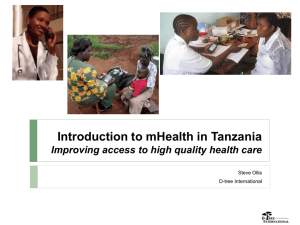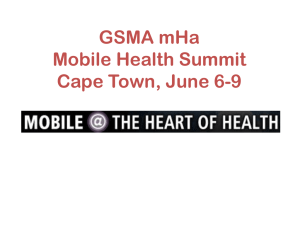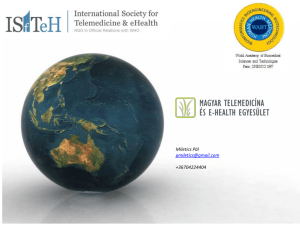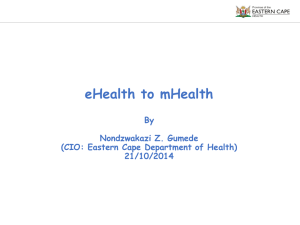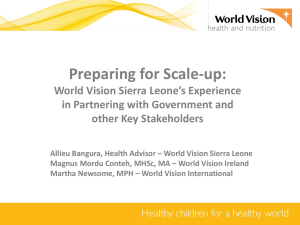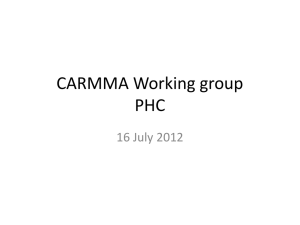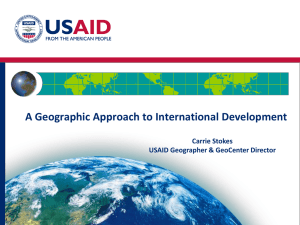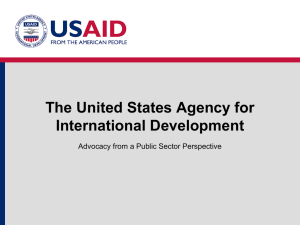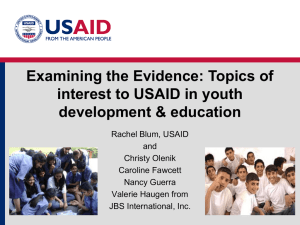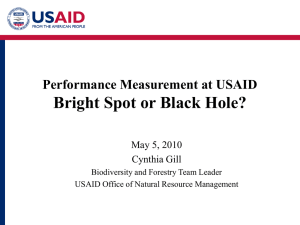mHealth Working Group listserv
advertisement
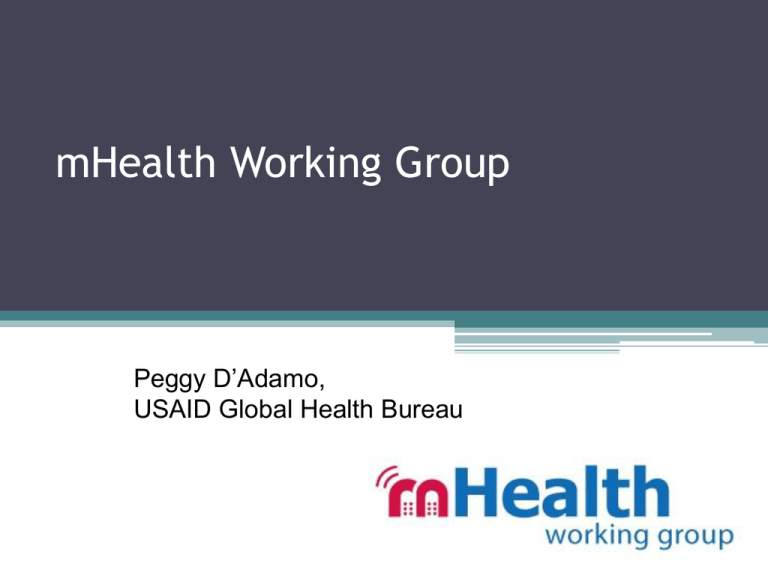
mHealth Working Group Peggy D’Adamo, USAID Global Health Bureau • Formed in 2009 by global health organizations for global health organizations • Collaborative forum for members to share, engage, partner and provide leadership in mHealth • Over 1100 individual members representing 350 organizations in 48 countries • Monthly meetings in Washington DC since August of 2009 Principles: • Frame mHealth within/as part of global health strategies • Apply public health standards and practices to mHealth activities • Emphasize appropriate, evidence-based, scalable, sustainable and interoperable approaches • Build capacity of implementing agencies Core Functions: • Convening • Knowledge sharing • Identifying and sharing promising practices • Collaboration • Capacity building • Advocacy • Member leadership Activities • Monthly meetings since August 2009 ▫ Topics include: evidence, national strategies, organizational strategies, M&E, HIV, mLearning, IT partnerships, research • mBCC Field Guide: Developed by Abt Associates in collaboration with mHealth Working Group http://www.mbccfieldguide.com/ Activities (continued) • mHealth Working Group listserv –an active listserv with 1,149 members representing 350 organziations in 49 countries • mHealth Inventory: Developed and updated an Inventory of 250+ mHealth projects funded by USAID and other donors • Global Health Track at mHealth Summit: Helped to organize a new “global health” track at the 2012 mHealth Summit, sponsored two sessions mHealth Toolkit www.k4health.org/toolkits/mhealth www.mHealthWorkingGroup.org Advisory Board • Abt Associates • FHI 360 • Georgetown Institute for Reproductive Health • Jhpiego • JHUCenter for Communication Programs • John Snow Inc. • Management Sciences for Health • Population Services International (PSI) • Save the Children • USAID USAID Support for mHealth • Development of a High Impact Practices (HIP) in FP/RH Emerging Practice brief • mHealth implementation guide, evaluation handbook, eLearning course • mHealth evidence database • Support for WHO mTAG group & mHealth Alliance Evidence Working Group High Impact Practices Brief • Defines mHealth • Provides background on the growth in the use of mobile phones • Explains why mHealth applications have the potential to be important • Reviews the evidence to date • Includes implementation tips • http://www.mhealthworkinggroup.org/sites/mh ealthwg.org/files/draft_mhealth_fp_hip.pdf mHealth Implementation Guide 1. Planning and design (partnerships, content, usability) 2. Technological considerations (global & local partners, protocols/approaches, phones, devices) 3. Scalability (national policies, integration, coordination) 4. Sustainability (costs, financial considerations, PPPs) 5. Evaluation (managing and using data, mHealth indicators) Evaluation Handbook • • • • Indicators specific to mHealth Templates for formative research & usability testing Traditional & new research designs Treatment of “big data” from mHealth programs --how to use these data for monitoring and evaluation • Conducting costing and cost effectiveness analysis for mHealth programs • Glossary of evaluation terms for mHealth program implementers and technologists mHealth Evidence Database • http://www.mhealthevidence.org/ • Will catalog, categorize and grade all of the known peerreviewed and gray literature on mHealth • Developed in collaboration with the WHO Techical Advisory Group on mHealth Evidence, Impact and Scale in Reproductive, Maternal, Newborn and Child Health To join the mHealth Working Group listserv: http://knowledge-gateway.org/mhealth For more information on the working group, contact: Laura Raney -lraney@fhi360.org Peggy D’Adamo mdadamo@usaid.gov
